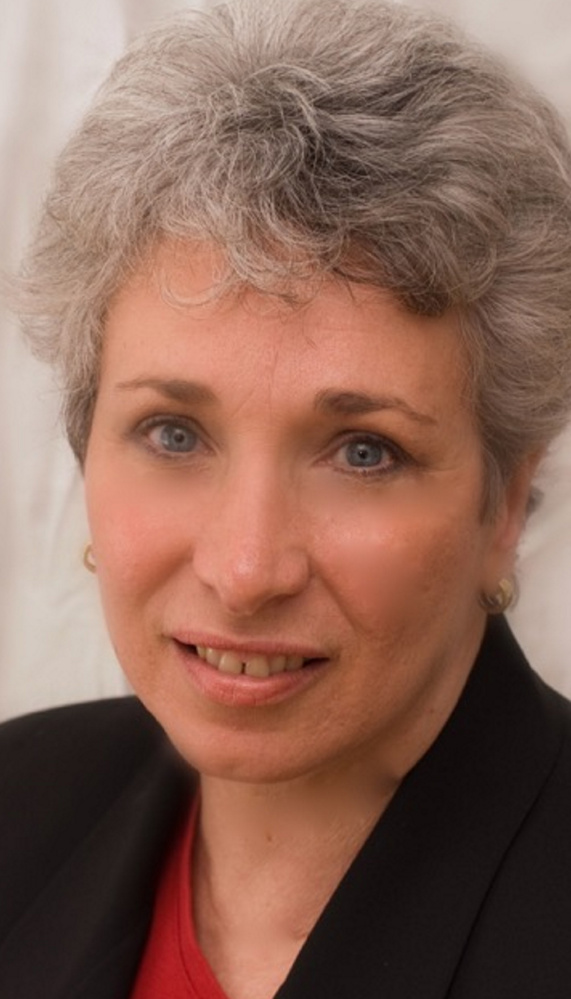Operation Hope – the Scarborough Police Department program that connects heroin addicts with treatment – needed more than good intentions to operate without dipping much into police funds.
The program, which began Oct. 1, needed money.
Enter Project Grace, a Scarborough nonprofit that is the fundraising arm of Operation Hope. The police department by law cannot raise money on its own, but it can partner with a nonprofit such as Project Grace.
So far, the group has raised about $11,000 that goes primarily to pay for airplane tickets for the people who have been helped by the program. About three out of every four of the 109 people accepted by Operation Hope since Oct. 1 have gone out of state for treatment because of the lack of treatment capacity in Maine.
Steffi Cox, executive director of Project Grace, said the nonprofit was approached by the police department last year, and they were glad to help.
“The whole community is suffering from this addiction,” Cox said. “We are seeing this in all of our neighborhoods. We are here to help people regardless of their circumstances. That is what Project Grace is about.”
Cox said the fundraising to date has been passive, with a website set up where people can donate.
The group plans to do more outreach with its fundraising later, and Cox said she doesn’t believe the societal stigma attached to drug addiction will hamper their efforts.
“We haven’t done a specific fundraising appeal yet for Operation Hope, but we plan to,” Cox said. “These people are very deserving of a helping hand.”
Cox also pointed out that in many cases, substance abuse is the root cause of other problems for which families need support. By addressing the core problem, Project Grace may reduce the need for other services.
For Jean-Marie Caterina, a Scarborough town councilor and the first person to donate to Operation Hope, the donation was personal as well as a desire to help others. She said her husband’s cousin died of a heroin overdose, so the issue has touched her family.
“For me, it’s personally the right thing to do and morally the right thing to do,” said Caterina, who declined to provide a specific dollar amount that she donated, but said it was in the “hundreds of dollars,” and she plans to donate more.
LESSENING STIGMA
Caterina said she realizes some may cast judgment on drug addicts, and that it’s not a traditional fundraising focus, such as an appeal to alleviate hunger.
“It’s not as important to me how they got to where they are, but what their situation is now and that they need help,” Caterina said.
Eileen Heisman, CEO of the National Philanthropic Trust, a nonprofit that gives grants to various charitable causes, said addiction is typically a difficult request for fundraising groups, which is why it’s not often pitched to potential donors.
“In general, there’s still a huge stigma with addiction,” Heisman said.
Heisman said a common approach to fundraising is to ask for money for a nonprofit that provides a number of different social services, including addiction treatment, but to de-emphasize that specific service during fundraising appeals.
But Heisman said attitudes may be changing about the topic, especially when trusted institutions like police departments are not labeling addicts as criminals, but instead treating addiction like the public health crisis that it is.
“I have great respect for the police departments that are willing to do this. They are very brave,” Heisman said.
Heisman said as the media highlight the topic of addiction and people learn more about it, the stigma may ease. Other stigmas have gone away over time.
“People used to be afraid to talk about cancer, and they often wouldn’t even say the word ‘cancer,’ like it was something to be ashamed of,” Heisman said. “But that’s no longer the case.”
CANDOR EVEN IN OBITUARIES
Operation Hope is modeled after a nationally recognized program created in Gloucester, Massachusetts, which receives support from a nonprofit organization, the Police Assisted Addiction and Recovery Initiative.
John Guilfoil, spokesman for the initiative, said the stigma attached to addiction has not hurt the group’s fundraising efforts.
As addiction has become more widespread, affecting a broader range of people, the stigma has diminished, Guilfoil said.
People are also being more open about the problem, as opposed to hiding it, he said.
“You never used to see this, but people are putting in their obituaries now that their loved ones have died of a heroin overdose, and asking people to donate to (the initiative) in lieu of flowers,” Guilfoil said. “We are getting hundreds of donations that way.”
Send questions/comments to the editors.




Success. Please wait for the page to reload. If the page does not reload within 5 seconds, please refresh the page.
Enter your email and password to access comments.
Hi, to comment on stories you must . This profile is in addition to your subscription and website login.
Already have a commenting profile? .
Invalid username/password.
Please check your email to confirm and complete your registration.
Only subscribers are eligible to post comments. Please subscribe or login first for digital access. Here’s why.
Use the form below to reset your password. When you've submitted your account email, we will send an email with a reset code.